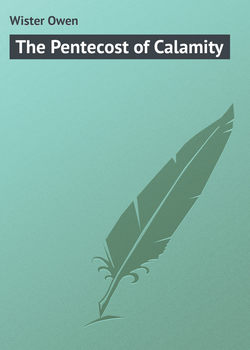Читать книгу The Pentecost of Calamity - Wister Owen - Страница 4
III
ОглавлениеThis serenity of living was not got up for the stranger; it was not to meet his market that a complex and artificial ease had been constructed, bearing no relation to what lay beyond its limits. That sort of thing is to be found among ourselves in isolated spots, though far less perfect and far more expensive. Nauheim was merely a blossom on the general tree. It was when I began my walks in the country and found everywhere a corresponding, ordered excellence, and came to talk more and more with the peasants and to notice the men, women and children, that the scheme of Germany grew impressive to me.
So had it not been in 1870, as I looked back on my early impressions, reading them now in my maturer judgment's light. So had it not been even in 1882 and 1883, when I had again seen the country. We various invalids of Nauheim presently began to compare notes. All of us were going about the country, among the gardens and the farms, or across the plain through the fruit trees to little Friedberg on its hill – an old castle, a steep village, a clean Teutonic gem, dropped perfect out of the Middle Ages into the present, yet perfectly keeping up with the present. Many of the peasants in the plain, men and women, were of those who brought their flowers and produce to sell in Nauheim – humble people, poor in what you call worldly goods, but seemingly very few of them poor in the great essential possession.
We invalids compared notes and found ourselves all of one mind. Ten or twelve of us were, at the several hotels, acquaintances at home; every one had been struck with the contentment in the German face. Contentment! Among the old and young of both sexes this was the dominating note, the great essential possession. The question arose: What is the best sign that a government is doing well by its people – is agreeing with its people, so to speak? None of us were quite so sure as we used to be that our native formula, "Of the people, by the people, for the people," is the universal ultimate truth.
Twice two is four, wherever you go; this is as certain in Berlin as it is at Washington or in the cannibal islands. But, until mankind grows uniform, can government be treated as you treat mathematics? Until mankind grows uniform, will any form of government be likely to fit the whole world like a glove? So long as mankind continues as various as men's digestions, better to look at government as if it were a sort of diet or treatment. How is the government agreeing with its people? This is the question to ask in each country. And what is the surest sign? Could any sign be surer than the general expression, the composite face of the people themselves? This goes deeper than skyscrapers and other material aspects.
I had sailed away from skyscrapers and limited expresses; from farmers sowing crops wastefully; from houses burned through carelessness; from forests burned through carelessness; from heaps of fruit rotting on the ground in one place and hundreds of men hungry in another place. I had sailed away from the city face and the country face of America, and neither one was the face of content. They looked driven, unpeaceful, dissatisfied. The hasty American was not looking after his country himself, and nobody was there to make him look after it while he rushed about climbing, climbing – and to what? A higher skyscraper. It was very restful to come to a place where the spirit of man was in stable equilibrium; where man's lot was in stable equilibrium; where never a schoolboy had been told he might become President and every schoolboy knew he could not be Emperor.
The students on a walking holiday from their universities often wandered singing through Nauheim. Somewhat Tyrolese in get-up, sometimes with odd, Byronic collars, too much open at the neck, they wore their knapsacks and the caps that showed their guild. They came generally in the early morning while the invalids were strolling at the Sprudel. The sound of their young voices singing in part-chorus would be heard, growing near, passing close, then dying away melodiously among the trees.
A single little sharp discord vibrated through all this German harmony one day when I learned that in the Empire more children committed suicide than in any other country.
But soon this discord was lost amid the massive Teutonic polyphony of well-being. Of this well-being knowledge was enlarged by excursions to various towns. To Worms, for instance, that we might see the famous Luther Monument. Part of the journey thither lay through a fine forest. This the city of Frankfurt-am-Main owns and has forested for seven hundred years; using the wood all the time, but so wisely that the supply has maintained itself against the demand. I thought of our own forests, looted and leveled, and of ourselves boasting our glorious future while we obliterated that future's resources. Frankfurt was there to teach us better, had we chosen to learn.
